#charles chesnutt
Explore tagged Tumblr posts
Text
“We are all puppets in the hands of Fate, and seldom see the strings that move us.”
― Charles W. Chesnutt, The Marrow of Tradition
0 notes
Quote
Impossibilities are merely things which we have not yet learned.
Charles Chesnutt
#Charles Chesnutt#quotes#life#love#important#tumblr#instagood#aesthetic#girl#literature#sad quotes#sad poem#zitate
0 notes
Quote
There’s time enough, but none to spare.
Charles w. Chesnutt
56 notes
·
View notes
Link
Charles Waddell Chesnutt was an American author, essayist, political activist and lawyer, best known for his novels and short stories exploring complex issues o...
Link: Charles W. Chesnutt
0 notes
Text
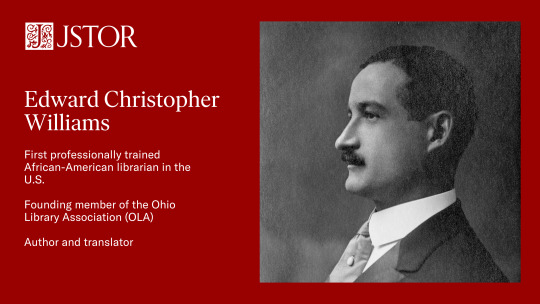
Edward Christopher Williams (11 Feb. 1871 - 24 Dec. 1929) was a pioneering African American librarian, educator, and scholar who played a vital role in shaping library collections at Western Reserve University (WRU) and Howard University. Born in Cleveland to Daniel P. Williams, a prominent African American figure, and Mary Kilkary Williams, a Clevelander of Irish descent, Williams embarked on a remarkable journey of academic and professional achievement.
Graduating from Adelbert College of WRU in 1892, Williams quickly made his mark as he assumed the role of first assistant librarian at the institution. His dedication and expertise saw him ascend to the position of head librarian in 1894 and university librarian in 1898. Eager to deepen his knowledge, Williams pursued further studies in library science at the New York Library School in Albany, completing the rigorous 2-year program in just one year.
Williams's impact on WRU's library was profound; he significantly expanded its collection and elevated its standards, establishing himself as an authority in library organization and bibliography. His advocacy for the establishment of a school of library science at WRU led to its inception in 1904, where he became an esteemed instructor, offering courses in reference work, bibliography, public documents, and book selection.
A founding member of the Ohio Library Association, Williams played a pivotal role in shaping its constitution and direction. However, in 1909, he left Cleveland to assume the role of principal at M St. High School in Washington, D.C. His tenure there was marked by his unwavering commitment to education and leadership.
In 1916, Williams joined Howard University as university librarian, further cementing his legacy in the realm of academia. Not only did he oversee the university's library, but he also directed Howard's library training class, taught German, and later chaired the Department of Romance Languages.
In pursuit of academic excellence, Williams embarked on a sabbatical in 1929 to pursue a Ph.D. at Columbia University. Tragically, his studies were cut short by his untimely passing later that year.
In 1902, Williams married Ethel P. Chesnutt, the daughter of Charles Chesnutt, a renowned author. Their union bore one son, Charles, who would carry on his father's legacy in the years to come.
Read more about Edward Christopher Williams here.
159 notes
·
View notes
Text
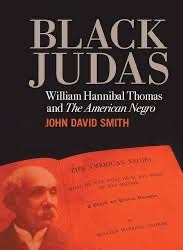
Sergeant William Hannibal Thomas (May 4, 1843 - November 15, 1935) was born in Pickaway County, Ohio to free parents. He performed manual labor and broke the color line by entering Otterbein University in 1859. His matriculation at the school sparked a race riot and he withdrew. Denied entry to the Union Army in 1861 because of his race, he served as principal of Union Seminary Institute.
After twenty-two months’ service as a servant in two white Union regiments, in 1863 he enlisted in Ohio’s first all-Black military unit, the 127th Ohio Volunteer Infantry. Appointed sergeant, he became a decorated combat soldier. He received a gunshot wound in the right arm that resulted in its amputation. He suffered pain and medical complications from this wound for the remainder of his life.
He resided in Pennsylvania, Ohio, Georgia, South Carolina, and Massachusetts. After attending divinity school, he worked as a journalist, teacher, theologian, lawyer, militia officer, trial justice, and elected official. The State Department appointed him consul to Portuguese Southwest Africa. He faced allegations of financial and moral improprieties from church, state, and local officials. He launched the short-lived magazine The Negro. He published Land and Education, a monograph that urged Blacks to reform themselves through prayer, improved moral values, education, and land acquisition.
He is known for The American Negro, a book that censured Blacks, especially women, and clergymen, as immoral, irresponsible, and destined to fail. He differentiated between mulattoes like himself, whom he considered superior, and Negroes, whom he judged to be hopelessly depraved. Few contemporary white critics denounced African Americans with as much crude rhetoric as he employed in The American Negro.
His book catapulted him onto the national stage. White supremacists cited The American Negro as justification for the repeal of the Fifteenth Amendment. African Americans, including Charles W. Chesnutt, W.E.B. Du Bois, and Booker T. Washington, were charged with hypocrisy and sought to suppress his book. They dubbed him “Black Judas. #africanhistory365 #africanexcellence
2 notes
·
View notes
Text
i have a massive to-do list but i cannot focus to save my life!
read charles chesnutt stories
annotate critical article
grade student project proposals
read book 1 of paradise lost
6 notes
·
View notes
Text
CHRONOLOGY OF AMERICAN RACE RIOTS AND RACIAL VIOLENCE p.2
November Wilmington, North Carolina, riot. 1898–1899 Coal mine riots at Pana, Virden, and Carterville, Illinois. 1899 Anti-Lynching Bureau is established. Anti-Lynching League is founded. Publication of Sutton Griggs’ first novel, Imperium in Imperio. April Sam Hose is lynched in Palmetto, Georgia, for allegedly killing his white employer and committing sexual assault on the man’s wife. 1900 Ida B. Wells-Barnett publishes her third anti-lynching pamphlet, ‘‘Mob Rule in New Orleans.’’ July New Orleans, Louisiana, riot. August New York City riot. 1901 Publication of Charles Chesnutt’s novel, The Marrow of Tradition, which was based on the Wilmington, North Carolina, riot of 1898. Pierce City, Missouri, riot. lvi CHRONOLOGY OF AMERICAN RACE RIOTS AND RACIAL VIOLENCE 1903 Publication of W.E.B. Du Bois’ The Souls of Black Folk: Essays and Sketches. Joplin, Missouri, riot. July In what is known as the Boston riot, militant activist William Monroe Trotter and his supporters disrupt a Boston speech by Booker T. Washington. 1904 March Springfield, Ohio, riot. 1905 Publication of The Clansman by Thomas Dixon, Jr. May First issue of the Chicago Defender. July The Niagara movement, an organization for young black intellectuals committed to ending racial prejudice, is founded by W.E.B. Du Bois, William Monroe Trotter, and others. 1906 Springfield, Missouri, riot. January Chattanooga, Tennessee, riot. April Greensburg, Indiana, riot. August Brownsville, Texas, riot. September Atlanta, Georgia, riot; the Atlanta Civic League is organized in the weeks following the riot. 1908 William Monroe Trotter founds the all-black National Equal Rights League. August Springfield, Illinois, riot. 1909 February W.E.B. Du Bois, William Monroe Trotter, Ida B. Wells-Barnett, and others found the National Association for the Advancement of Colored People (NAACP), an interracial organization dedicated to legal and social reform. 1910 The Crisis, the official magazine of the NAACP, is founded by W.E.B. Du Bois. July Palestine, Texas, riot. 1911
9 notes
·
View notes
Text







Hypervisibility (n.) the feeling of being overly visible because pf an individual’s race or ethnicity.
(1) Joseph Mallord William Turner, The Slave Ship
(2) Charles W. Chesnutt, Conjure Woman and Other Conjure Tales
(3) Thylias Moss, Slave Moth
(4) Richard Wright, Native Son
(5) Wangechi Mutu, Sleeping Heads (as seen in Claudia Rankine’s Citizen)
(6) Jay-Z, “Minority Report”
(7) Lynn Nottage, Intimate Apparel
2 notes
·
View notes
Text
Birthdays 6.20
Beer Birthdays
Greg Robles (1964)
Forest Gray (1967)
Lisa Zimmer (1977)
Five Favorite Birthdays
Wendy Craig; English actor (1934)
Andy Etchebarren; Baltimore Orioles C (1943)
Errol Flynn; actor (1909)
Nicole Kidman; actor (1967)
Brian Wilson; pop singer, songwriter (1942)
Famous Birthdays
Danny Aiello; actor (1933)
Michael Anthony; rock bassist (1954)
Chet Atkins; guitarist (1924)
Charles W. Chesnutt; writer (1858)
Candy Clark; actor (1947)
Len Dawson; Kansas City Chiefs QB (1935)
Eric Dolphy; jazz musician (1928)
Olympia Dukakis; actor (1931)
Stephen Freaks; film director (1941)
John Goodman; actor (1952)
Billy Guy; pop singer (1936)
Lloyd Augustus Hall; chemist (1894)
Lillian Hellman; writer (1905)
Martin Landau; actor (1928)
Audie Murphy; actor (1924)
Anne Murray; pop singer (1945)
Jacques Offenbach; composer (1819)
Miles O'Keeffe; actor (1954)
Lionel Richie; pop singer (1949)
Gigi Rivera; pornstar (1989)
Robert Rodriguez; film director (1968)
Kurt Schwitters; German artist (1887)
Vikram Seth; Indian poet (1952)
John Taylor; rock guitarist, bassist (1960)
Dave Thomas; comedian, actor (1949)
James Tolkan; actor (1931)
Bob Vila; television construction host (1946)
2 notes
·
View notes
Text
“Those who set in motion the forces of evil cannot always control them afterwards.”
― Charles W. Chesnutt, The Marrow of Tradition
0 notes
Text
What is Ifa Tuntun?
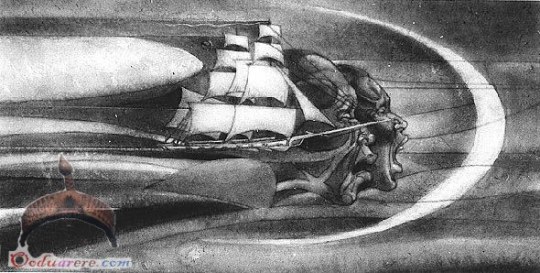
What is Ifa Tuntun? When did Ifa Tuntun begin? Who is culpable for initiating it? Ifa Tuntun started the moment we Africans were packed into the hulls of the merchant ships and hauled across the sea. Everything changed from that point. Nothing has ever been the same again both for those who were forcibly taken and those left behind. Those forcibly taken did several things: - Some looked back and cursed the land that they were leaving, and those who forced them into captivity and alienation. - Some, knowing they would be killed, locked their captors into a fight, even chained, and got executed. - Some, with courage, jumped into the ocean, burying their bodies in the mother sea, preferring death to captivity. - Some descended into the hull of the ships into which they were led, determined to live to see where the rest of the journeys of their lives would lead them. They shed blood. They shed tears. They shed sweat, cold sweat. They shed urination. They shed milk, those mothers taken away from their children, their swollen bodies lactating. They met others who could not speak their language. They communicated with gestures, with signs, with sighs, with cries. That was the birth of jazz music, as they improvised beyond words to make their feelings clear. That was the birth of blues, as they sobbed, rocking from side to side, moaning ai, aye, bae, bi, bligh, buy, by, bye, cai, chai, chi, cry, cy, dai, die, dry, dye, eye, fae, fi, fly, fry, frye, guy, hi, high, hy, hye, i, i., kai, kwai, lai, lie, ly, lye, mai, mei, my, nigh, nye, pe-tsai, phi, pi, pie, ply, pri, pry, psi, pye, rye, sai, shy, sky, skye, sly, spry, spy, sty, sy, tai, thai, thigh, thy, tie, tri, try, ty, tye, vi, vie, wai, why, wry, wye, y, yeeparipa! Their blood, mixing with the sweat, tears, milk, and urines on the floor of the ship, as pregnant women gave birth, and weak ones gave up life and dead bodies left marks on the bottom of the slave ships—gave birth to the origin of abstract painting, conceptual art, and gestural images of body markings.

© Tom Feelings, Middle Passage Photo / White Ship, Black Cargo That moment, which came for different people and their descendants in the foreign land, which they turned into the New Africa, was the end of an old order, and the birth of a new world. Their new voices articulated Ifa Tuntun, as they opened their mouths, and sang, in a rhythm, pacing, harmony, discord, and coloring never before known to humankind, Ifa Tuntun came out of these spirits: Aberjhani, Mumia Abu-Jamal, Linda Addison, Tomi Adeyemi , Rochelle Alers, Elizabeth Alexander, Kwame Alexander, Larry D. Alexander, Lewis Grandison Alexander, Candace Allen, Clarissa Minnie Thompson Allen, Robert L. Allen, Garland Anderson, Maya Angelou, Tina McElroy Ansa, Ray Aranha, Chalmers Archer, M. K. Asante, Jr. Jabari Asim, Russell Atkins, William Attaway, James Baldwin, Calvin Baker, Toni Cade Bambara, Leslie Esdaile Banks Amiri Baraka, Shauna Barbosa, Steven Barnes, Lindon W. Barrett, Samuel Alfred Beadle, Paul Beatty, Robert Beck, Christopher C. Bell, Derrick Bell, Brit Bennett, Gwendolyn Bennett, Hal Bennett, Lerone Bennett, Jr., Bertice Berry, Venise T. Berry, Henry Bibb, Eleanor Taylor Bland, Marita Bonner), Arna Bontemps, James Boggs, Demico Boothe, David Bradley, William Stanley Braithwaite, Gwendolyn Brooks, Claude Brown, Hallie Quinn Brown, Roseanne A. Brown, Sterling A. Brown, William Wells Brown, Anatole Broyard, Ashley Bryan, Niobia Bryant, Ed Bullins, Olivia Ward Bush, Octavia Butler, Roderick D. Bush, George Cain, Bebe Moore Campbell, Stokely Carmichael, Ben Carson, Jennie Carter, Stephen L. Carter, Cyrus Cassells, Kashana Cauley, Eddie Chambers, Lady Chablis, Charles W. Chesnutt, Alice Childress, Cheril N. Clarke, Cheryl Clarke, John Henrik Clarke, Stanley Bennett Clay, Troy, Pearl Cleage, Eldridge Cleaver, Michelle Cliff, Lucille Clifton, Wendy Coakley-Thompson, Ta-Nehisi Coates , author, journalist, Wanda Coleman, Marvel Cooke , Anna J. Cooper, Clarence Cooper Jr., J. California Cooper, James Corrothers, Jayne Cortez, Bill Cosby, Joseph Seamon Cotter, Donald Crews, Stanley Crouch, Harold Cruse, Countee Cullen, Waring Cuney, Christopher Paul Curtis, Frederick Douglass, W. E. B. Du Bois, Jeffrey Daniels (living), Meri Nana-Ama Danquah, Christopher Darden, Angela Davis, Frank Marshall Davis, Kyra Davis, Milton Davis, George Dawson, Samuel R. Delany, Eric Jerome Dickey, Anita Doreen Diggs, Nahshon Dion, Lonnie Dixon, Rita Dove, Sharon Draper, Tananarive Due, Henry Dumas, Paul Laurence Dunbar, Alice Dunbar-Nelson, David Anthony Durham, Richard Durham, Michael Eric Dyson, Ralph Ellison, Cornelius Eady, Sarah Jane Woodson Early, Junius Edwards, Olaudah Equiano, Don Evans, Mari Evans, Percival Everett, Eve Ewing, Sarah Webster Fabio, Ronald Fair, Sarah Farro, John M. Faucette, Arthur Huff Fauset, Jessie Fauset, London R. Ferebee, Lolita Files, Antwone Fisher, Rudolph Fisher, Liseli Fitzpatrick, Sharon G. Flake, Robert Fleming, Mary Weston Fordham, Namina Forna, Leon Forrest, Tonya Foster, J. E. Franklin, John Hope Franklin, Hoyt W. Fuller, Nina Foxx,Ernest Gaines, Ruth Gaines-Shelton, Marcus Garvey, Tony Gaskins, Henry Louis Gates, Roxane Gay, Nikki Giovanni, Roy Glenn, Donald Goines, Marita Golden, Edythe Mae Gordon, Edmond T. Gordon, Eugene Gordon, Charles Gordone, Amanda Gorman, Lawrence Otis Graham, Moses Grandy, Victor Hugo Green, Eloise Greenfield, Sam Greenlee, Bonnie Greer, Deborah Gregory, Dick Gregory, Sutton E. Griggs, Nikki Grimes, Angelina Weld Grimke, Charlotte Forten Grimké, Rosa Guy, John Langston Gwaltney, Yaa Gyasi, Langston Hughes, Zora Neale Hurston, Alex Haley, Virginia Hamilton Henry Hampton, Lorraine Hansberry, Joyce Hansen, Vincent Harding, Rachael Harding, Edward W. Hardy, Nathan Hare, Frances Harper, E. Lynn Harris, Michael Harris, Juanita Harrison, Saidiya Hartman, Robert Hayden, Essex Hemphill, David Henderson, Safiya Henderson-Holmes, Freida High-Tesfagiorgis, Chester Himes, Kameisha Jerae Hodge, Corey J. Hodges, Karla F. C. Holloway, bell hooks, Pauline Hopkins, Nalo Hopkinson, George Moses Horton, Roberta Hoskie, Tracie Howard, Detrick Hughes, Langston Hughes , Zora Neale Hurston, Jordan Ifueko, Rashidah Ismaili, Brenda Jackson, Jesse C. Jackson, Mae Jackson, Harriet Jacobs, T. D. Jakes, Ayize Jama-Everett, John Jea, N. K. Jemisin, Beverly Jenkins, Terri L. Jewell, Alaya Dawn Johnson, Angela Johnson, Charles R. Johnson, Georgia Douglas Johnson, Helene Johnson, James Weldon Johnson, Mat Johnson Varian Johnson, Edward P. Jones, Gayl Jones, Joni Omi-Osun Jones, Kelly Jones, Tayari Jones, June Jordan, Martin Luther King, Ron Karenga, Bob Kaufman, Elizabeth Keckley, William Melvin Kelley, Emma Dunham Kelley-Hawkins, Randall Kenan, Adrienne Kennedy, Nina Kennedy, John Oliver Killens, Jamaica Kincaid, Emeline King, Martin Luther King Jr., Woodie King Jr., Etheridge Knight, Yusef Komunyakaa, Pinkie Gordon Lane, Nella Larsen, Victor LaValle, Brent Leggs, Andrea Lee, Julius Lester, David Levering Lewis, Willie Little, Alain Locke, Attica Locke, Audre Lorde, Bettina L. Love, Glenville Lovell, Toni Morrison, Christopher Mwashinga, Nathaniel Mackey, Naomi Long Madgett, Haki R. Madhubuti, Clarence Major, Raynetta, Manning Marable, John Marrant, Paule Marshall, Ora Mae Lewis Martin, Hans Massaquoi, Brandon Massey, Victoria Earle Matthews, Julian Mayfield, James McBride, Nathan McCall, Bernice McFadden, Claude McKay, Patricia McKissack, Reginald McKnight, Kim McLarin, Terry McMillan, James Alan McPherson, Louise Meriwether, Oscar Micheaux, E. Ethelbert Miller, May Miller, Arthenia J. Bates Millican, Mary Monroe, Anne Moody, Jessica Care Moore, George McMichael Moyer, Toni Morrison, E. Frederic Morrow, Walter Mosley, Thylias Moss, Willard Motley, Jess Mowry, Albert Murray, Pauli Murray, Walter Dean Myers, Tariq Nasheed, Gloria Naylor, Larry Nealy, Barbara Neely, Huey P. Newton, Richard Bruce Nugent, Mwatabu S. Okantah, Oladejo Okediji, Nnedi Okorafor, Marc Olden, Porsha Olayiwola, Rita Omokha, Terry a. O'Neal, Tochi Onyebuchi, Roscoe Orman, Ewuare Osayande, Brenda Marie Osbey, Candace Owens, ZZ Packer, Gordon Parks, Suzan-Lori Parks, Tyler Perry, Eric Pete, Ann Petry, Delores Phillips, Steve Phillips, William Pickens, Leonard Pitts, Ann Plato, Sterling Plumpp, Carlene, Alvin F. Poussaint, Jewel Prestage, Robert Earl Price, Aishah Rahman, Alice Randall, Dudley Randall, Cordelia Ray, Francis Ray, Andy Razaf, Ishmael, Kiley Reid, Jason Reynolds, Willis Richardson, Florida Ruffin Ridley, Harrison David Rivers, Cliff Roquemore, Carolyn Rodgers, Octavia V. Rogers Albert, Al Roker, Fran Ross, Ola Rotimi, Shawn Stewart Ruff, Josephine St. Pierre Ruffin, Malinda Russell, Rachel Renee Russell, Carl Hancock Rux, Rupaul, Kalamu ya Salaam, Sonia Sanchez, Dori Sanders, Sapphire, Charles R. Saunders, Arturo Alfonso Schomburg, George Schuyler, Gil Scott-Heron, Clara Johnson Scroggins, Sandra Seaton, Victor Séjour, Fatima Shaik, Tupac Shakur, Ntozake Shange, Nisi Shawl, Lowrey Stokes Sims, Sister Souljah, Iceberg Slim, Amanda Smith, Cherise Smith, Danez Smith, Effie Waller Smith, William Gardner Smith, Thomas Sowell, A. B. Spellman, Anne Aurin Squire, Theophilus Gould Steward, Maria W. Stewart, Jeffrey C. Stewart, Nic Stone, Ellen Tarry, Mildred D. Taylor, Susie Taylor, Mary Church Terrell, Lucy Terry, Michael Thelwell, Angie Thomas, Clarence Thomas, Joyce Carol Thomas, Lorenzo Thomas, Piri Thomas, Truth Thomas, Pamela Thomas-Graham, Era Bell Thompson, Howard Thurman, Wallace Thurman, Ruth D. Todd, Lynn Toler, Melvin B. Tolson, Jean Toomer, Touré, Askia M. Touré, Quincy Troupe, Sojourner Truth, Omar Tyree, Neil deGrasse Tyson, Henry Van Dyke, Ivan Van Sertima, Bethany Veney, Olympia Vernon, Dwyane Wade, Alice Walker, Frank X. Walker, Margaret Walker, Christopher George Latore Wallace, Michele Wallace, Eric Walrond, Mildred Pitts Walter, Marilyn Nelson Waniek, Douglas Turner Ward, Jesmyn Ward, Booker T. Washington, Frank J. Webb, Ida B. Wells, Richard Wesley, Valerie Wilson Wesley, Cornel West, Dorothy West, Phillis Wheatley, Walter Francis White, Colson Whitehead, Steven Whitehurst, Albery Allson Whitman, Anthony Whyte, John Edgar Wideman, Isabel Wilkerson, Crystal Wilkinson, Alicia D. Williams, Chancellor Williams, John Alfred Williams, Samm-Art Williams, Sherley Anne Williams, Walter E. Williams, August Wilson, Harriet E. Wilson, Kathy Y. Wilson, William Julius Wilson, Oprah Winfrey, Carter G. Woodson, Jacqueline Woodson, David Wright, Jay Wright, Kelly Wright, Richard Wright, Sarah E. Wright, David F. Walker, Malcolm X, Marian X, Camille Yarbrough, Frank Yerby, Al Young, Zane, and Ahmos Zu-Bolton. Moyo Okediji did not invent Ifa Tuntun. He is not culpable. If you kill Moyo Okediji, it is pointless. To kill Ifa Tuntun, you must kill all the sacred voices listed above. They are culpable. Picture is by Tom Feelings, Middle Passage: White Ship, Black Cargo Read the full article
0 notes
Text

Alredered Remembers Charles W. Chesnutt, African-American author, essayist, political activist, and lawyer, on his birthday.
"Sins, like chickens, come home to roost."
0 notes
Text

Attorney Charles Waddell Chesnutt (June 20, 1858 – November 15, 1932) was an author, essayist, political activist, and lawyer, known for his novels and short stories exploring complex issues of racial and social identity in the post-Civil War South. Two of his books were adapted as silent films in 1926 and 1927 by the African-American director and producer Oscar Micheaux. Following the Civil Rights Movement during the 20th century, their interest in their works of him was revived. Several of his books were published in new editions, and he received formal recognition. A commemorative stamp was printed in 2008.
During the early 20th century in Cleveland, he established what became a highly successful court reporting business, which provided his main income. He became active in the NAACP, writing articles supporting education as well as legal challenges to discriminatory laws. #africanhistory365 #africanexcellence
0 notes
Text
African American authors, since the 1800s, have written texts that center primarily around white characters. Robert Fikes, Jr. terms these works “white life novels” and they arose, according to Fikes, amidst “[t]he pressure to conform to majority group tastes and expectations along with the personal desire of the authors to experience complete freedom of expression.” Authors such as Amelia E. Johnson, Paul Laurence Dunbar, William Attaway, Wallace Thurman, and others wrote “white life novels” between the late 1800s to the mid-1900s. These novels continued through the social protest era from the mid-1940s onward with authors such as Zora Neal Hurston, Ann Petry, and Frank Yerby.
In the Souls of White Folks: African American Writers Theorize Whiteness, Veronica Watson theorizes “the literature of white estrangement” as works and materials “that critically [engage] Whiteness as a social construction.” White estrangement literature confronts “the myths and mythologies of Whiteness,” causing readers to come face to face with “the regressive, destructive, and often uncivilized ‘nature’ of Whiteness.” Watson argues that Hurston, Yerby, Charles Chesnutt, and other African American authors engage with the literature of white estrangement because they expose “Whiteness to itself by providing a revealing counternarrative to the myths of Whiteness.”
0 notes
Text
New Country 27e jaargang #T1221(S780) (C25)van 18 maart 2024 (wk 12) uitzending op Smelne fm & Crossroads Country Radio
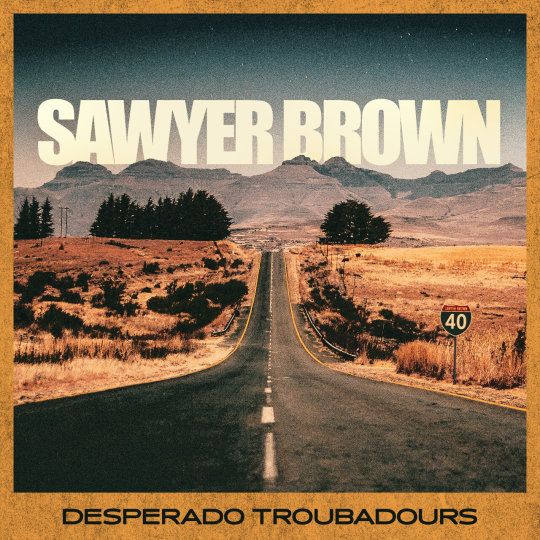
Album van de week: Sawyer Brown – Desperado Troubadours
Classic album: john Denver – Back Home again 1974
Hits of the Year : 1984
Maandfavoriet : Lainey Wilson - Countrys Cool Again
Maandartiest : Hal Ketchum
3 in 1: Patsy Cline
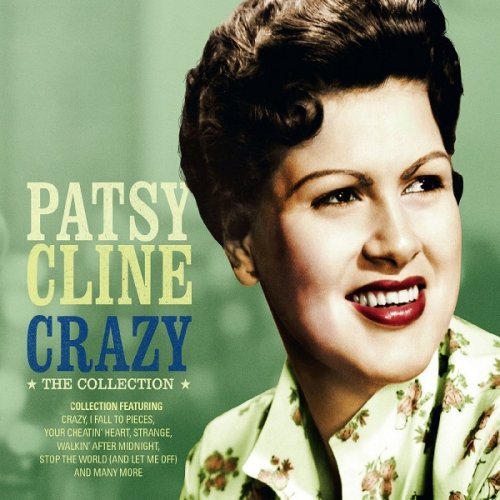
Hal Ketchum - Hearts Are Gonna Roll *maandartiest
Toby Keith – How Do You Like Me Now ?! #1 24 jaar
Luke Combs – Going Going Gone # 1 2023
The Mavericks - Moon & Stars
Chris Janson— Whatcha See Is Whatcha Get
Charles Wesley Godwin - All Again
Koe Wetzel – Damn Near Normal
Keith Urban - Messed Up As Me 25
Kane Brown – I Can Feel It #1.
Sawyer Brown – Under This Ole Hat Album vd week
Sawyer Brown - Nashville Cat *album
Chris Stapleton – Broken Halos 2018
Lee Greenwood - Going, Going, Gone - 1984
Daryle Singletary – Amen Kind of Love 10/03/1971
Merle Haggard – Daddy Frank (the guitar man)
Lainey Wilson - Country’s Cool Again favoriet
Tim McGraw - Standing Room Only sofi
John Denver – Back Home Again classic album
John Denver - Grandma’s Feather Bed
Jesper Lindell - Before The Sun
The Secret Sisters - Paperweight .
Patsy Cline -Crazy. (3 in 1)
Patsy Cline - I Fall to Peaces
Patsy Cline - She’s Got You
Sawyer Brown - I Wouldn’t Change A Thing Album van de week
Morgan Wallen - Good Girl Gone Missin’ #1 album.
Bruce Robison - Travelin' Soldier
Brian Capps Standing On A Rock
Chris Hillman - Love Reunited.
Chris Ledoux - Whatcha Gonna Do With A Cowboy (With Garth Brooks)
Steve Earl - Nowhere Road. Trucksong
Hal Ketchum – Sure Love _ maandartiest
Miranda Lambert – The House That Build Me juweeltje
Wyatt Putman - Fast Lanes *Album vorige week
Sawyer Brown. Goodnight And Good Morning Album vd week
Jimmy LaFave.-What Good Am I.
Major Dundee - Sweet Little Liza.
Ben Steneker en Aurora - If I Needed You .Dutch corner.
Ruud Hermans - Can You Help Me Out Of This Dream Dutch corner
John Conlee - In My Eyes 5 1982
George Strait - You Look So Good In Love. #4
The Judds – Why Not Me #3
Anne Murray - Nobody Loves Me Like You Do #2
Willie & Julio - To All The Girls I Loved Before #1
Mark Chesnutt – Lost in The Feeling
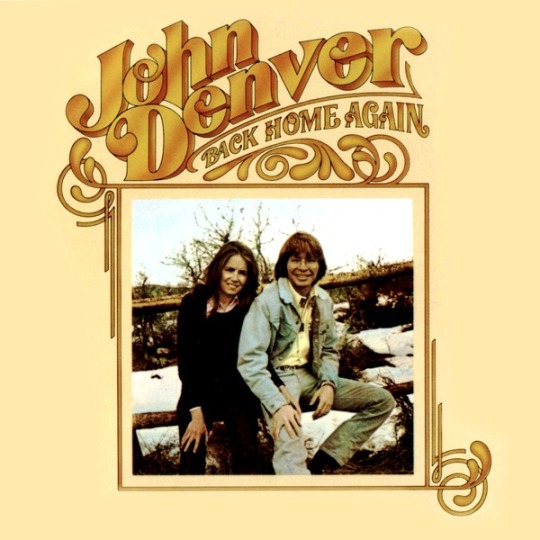
#playlist new country#maandagavond smelne's country avond#smelnefm#crossroads country radio#countrymusic#cdvdweek#playlist#maandfavoriet#newcountry
0 notes